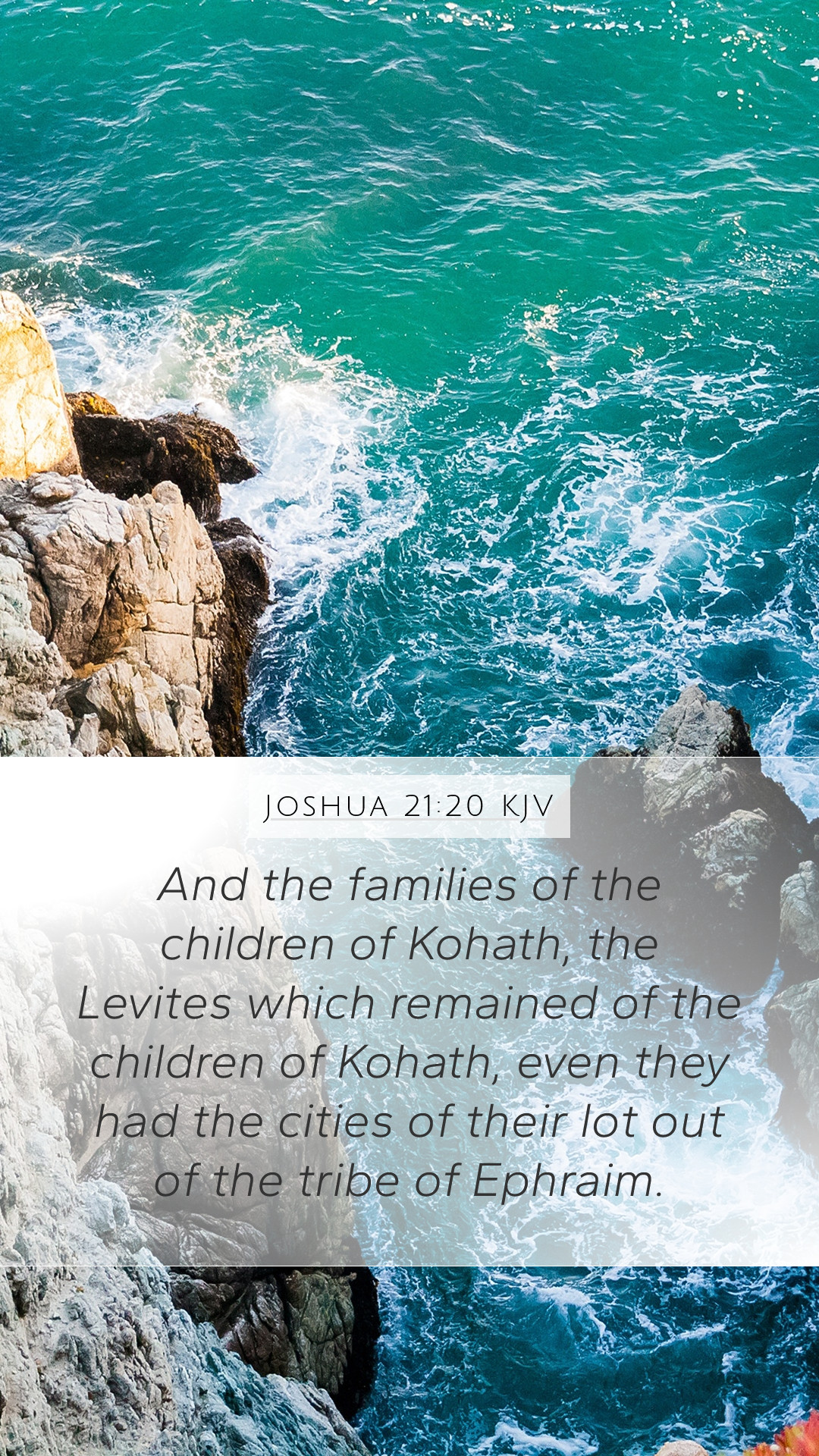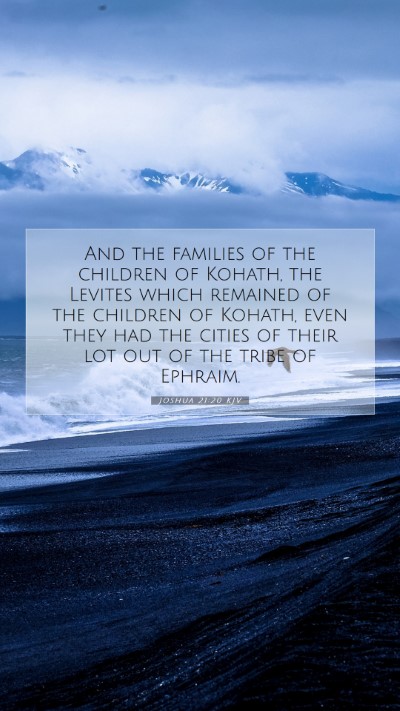Bible Verse Meaning and Commentary: Joshua 21:20
Verse Reference: Joshua 21:20
In this powerful passage from the Old Testament, we delve into the rich tapestry of meaning surrounding Joshua 21:20. This verse is part of the broader narrative concerning the allocation of cities to the Levites, a tribe appointed for religious duties among the Israelites. Understanding this verse involves exploring its historical context, theological implications, and its relevance to modern believers.
Overview of the Passage
The specific reference in Joshua 21:20 discusses the cities given to the children of Kohath among the Levites. The Levites received no inheritance of land like other tribes; rather, they were assigned cities to dwell in, ensuring that their needs were met while they fulfilled their role as spiritual leaders and mediators between God and the people.
Insights from Public Domain Commentaries
-
Matthew Henry's Commentary
Matthew Henry emphasizes that the allocation of cities to the Levites signifies God’s provision for those who serve in spiritual capacities. He notes that it demonstrates God's care for the Levitical priests and their families, ensuring they had places to live amidst the people they served.
-
Albert Barnes' Commentary
Albert Barnes elaborates on the distribution of these cities as a structure of divine order. He points out that this was not merely a land grant but a divine arrangement reflecting God’s intention to support the tribe of Levi. Barnes also highlights that these cities served as centers of worship and learning, contributing to the spiritual health of the nation.
-
Adam Clarke's Commentary
Adam Clarke provides a detailed historical context for the Kohathites, referring to their duties in the tabernacle. He points out that their specific responsibilities included the care of sacred objects, showing how their living arrangements were directly tied to their service. Clarke also indicates the significance of communal living in spiritual leadership, reflecting how they were integral to the worship life of Israel.
Understanding the Theological Implications
The theological implications of Joshua 21:20 extend beyond the historical context. The assignment of cities to the Levites underscores several key points:
- God's Provision: This verse illustrates God's commitment to provide for those who dedicate their lives to His service.
- Community and Worship: The Levites play a crucial role in maintaining the religious practices of the Israelites; their cities facilitate communal worship and spiritual education.
- Divine Order: The organized distribution of cities reflects God's divine order, emphasizing how every role within the community is essential.
Application for Modern Believers
For contemporary readers looking to apply the lessons from Joshua 21:20:
- Consider how we support and provide for those in our communities who serve us spiritually, such as pastors and church leaders.
- Reflect on the importance of communal worship and how we can create environments that foster spiritual growth.
- Recognize that every role in the Church is vital, and appreciate the diverse gifts and responsibilities that contribute to the body of Christ.
Related Bible Cross References
- Numbers 18:1-7: Discusses the Levitical priesthood and their responsibilities.
- Deuteronomy 10:8-9: Talks about how the Levites have no inheritance among the people.
- 1 Chronicles 6:54-81: Provides details on the cities assigned to the Levites.
Conclusion
In summary, Joshua 21:20 opens a window into the careful planning and divine provision for the spiritual leaders of Israel. Insights from renowned biblical scholars like Matthew Henry, Albert Barnes, and Adam Clarke reveal layered meanings related to God's care and community health. For those seeking deeper Bible verse meanings, this verse stands as a testament to God's faithfulness in providing for His servants and shaping the worship life of His people. As we reflect on this passage, we find a rich context for understanding Scripture alongside applying its principles to our daily lives.


